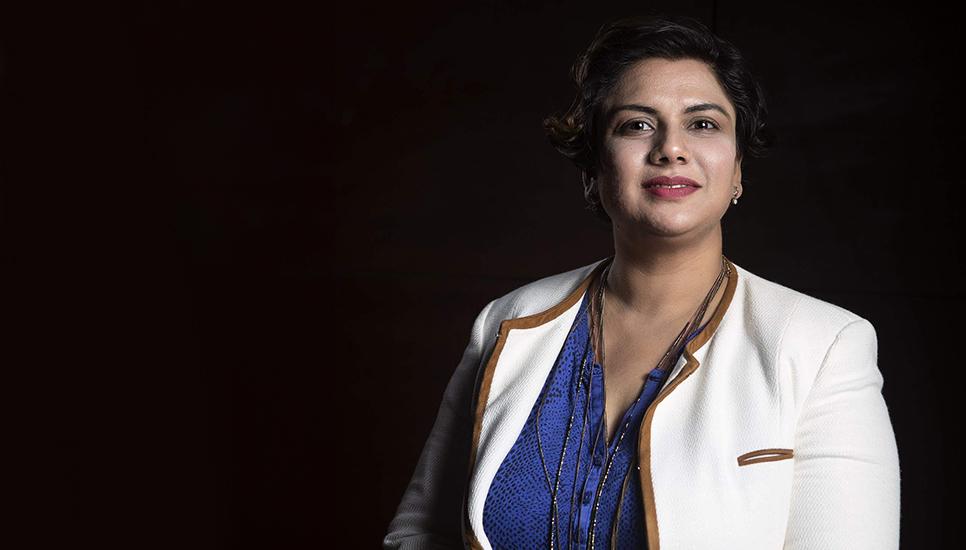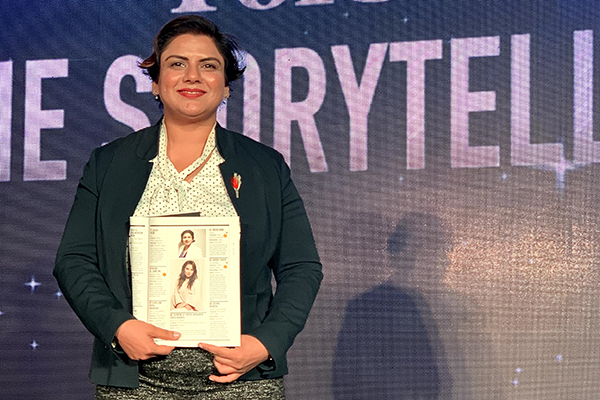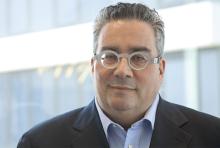Dr. Ruchi Dana: Making a wider impact through business

Coming from a family of medical professionals and being a particularly experienced one herself, Dr. Ruchi Dana understands all too well the necessity for medical innovation to deal with the needs of a growing global population.
Having transitioned successfully into a seasoned entrepreneur and business leader, Ruchi is actively involved in strategic planning for the Dana Group and manages family office investments (“I take care of new projects for the family business operations,” she says. “I also oversee any investment decisions the family wants to make”). She has been instrumental in growing various divisions to great success across the family firm and is today actively involved in engaging startups that have the potential to transform the healthcare industry.
Ahead of chairing The 8th Indian Family Office Forum in Mumbai, India, on December 12-13, 2023, Dr. Ruchi Dana discusses safeguarding family values, driving factors for investment and the future of family offices in India…
As chair of the Indian Family Office Forum in Mumbai on December 12-13, what are you hoping to get out of the event?
I think it’s an exciting opportunity to interact with family offices and family members, to understand their investment perspectives, and to see what options are available to preserve wealth and grow it further. I’m looking forward to getting to know the attending families in a close-knit environment.
The theme of the forum is ‘Preserving Legacy & Prospering with Purpose’. As a second-generation family member, how do you go about safeguarding the heritage and values of your family while ensuring your wealth serves a meaningful purpose?
My parents are doctors, so am I and my brother, and we’ve naturally all taken the Hippocratic Oath. When we ventured into manufacturing and trading, my father wanted to make sure that we never get involved with any business that would harm the human body.
Even if the generations that follow us might not work in the healthcare field, we want them to understand this is the fundamental basis of what our family stands for. So, even though we’ve had some fantastic opportunities to make profitable investments, we chose to stay away because they are detrimental to human health.
I think it’s important for us all to sit together and have a document we all agree upon to ensure the preservation of the values and legacy of the family for the next generation.
You’re a qualified medical practitioner who has transitioned successfully into a new career as a seasoned entrepreneur and business leader. Did you always see yourself becoming part of the family firm?
From a young age, I have always admired my parents. They were both doctors and I wanted to follow in their footsteps. It was really amazing to grow up in a family and see so much respect given to my parents for their noble work.
Initially, when my dad ventured into business, my brother and I had some doubts because it’s a completely different world from medicine. But when I joined the family business, I realised the huge impact we could make.
As a doctor, we can only touch the lives of the patients that we come across face to face. But, if you’re on the management side of things, you can change so many more lives because you can manage hospitals, medical devices, companies etc. For me and my brother, our vision changed, and we decided to join the business and help take it forward.
It’s mainly about creating an impact on the largest number of lives possible.
Part of your role at Dana Group focusses on leading investments for the family office, with a particular focus on MedTech, life science and healthcare. What are your driving factors for investment in these fields?
When I was a college student, I worked a lot on artificial intelligence and technology in healthcare. I had a very good college professor mentor who introduced me to the far-reaching possibilities of new and innovative low-cost medical devices. Many of these were not very high tech or expensive, but they had the potential to make a huge impact.
After receiving my medical degree, I went to Stanford University for my MBA and I was introduced to their Byers Center for Biodesign, which lies at the intersection of many disciplines within the field, including doctors, engineers, lawyers, PhD students and various other professionals who come together and solve unmet clinical needs. Again, many of the solutions were around low-cost medical devices.
Since then, my focus has been on low-cost medical devices across any discipline, such as orthopaedics; ear, nose, and throat; hip-replacement surgery etc… It’s mainly about creating an impact on the largest number of lives possible.
What advice would you give to family offices looking to invest into similar fields but don’t know where to start?
MedTech investments require a lot of knowledge about the industry. The good thing about us is that we work with a speciality hospital in India, so we can pilot new devices and procedures and reach out to doctors and nurses. Almost our entire family is full of doctors and many of our classmates from college can help out in terms of understanding whether there’s a clear need for any particular new method.
For family offices that don’t have that access and network, they need to rely on advisors. Even our family office has a network of advisors to help us out from time to time, we work with consultants to deep dive into a particular sector to understand whether there’s a clear need and assess the valuation. Piggybacking on other family offices’ research can be very helpful if you don’t have the expertise but it’s very important to do your own due diligence.

Family office growth around the world is on the rise. How do you see the future of family offices in India and across the emerging markets?
Across India, there’s a lot of new wealth creation and the next generation that’s coming up in these families is very fascinated about the values of startups and venture capital (VC), so a lot of focus is going into that.
Some of these family offices are also looking to start their own VC firms. That’s a trend that I’ve been seeing a lot happening in India, which is exciting because there’s a lot of alpha and you can generate good returns. If there are some synergies with the existing family business, I think it will make sense to invest into such opportunities, instead of more traditional fixed-income opportunities.
I think, overall, it’s a positive trend but I would like to see more women involved in investment decision making. I believe that would motivate more startups and more and more women founders as well.
You have been recognised by Forbes Middle East as the “Next Generation Business Leader, Arab World” for three consecutive years (2017, 2018 and 2019), Campden Wealth as the “Women to Watch”, one of the “Top 75 Family Business Leaders” by Campden Research, received the Yuva Ratna Award and were featured by Forbes on their Power Businesswomen 2020 Middle East list. How does it feel being held up as a paragon of doing things right?
I think it’s exciting but, at the same time, there’s also a lot of pressure and a sense of responsibility because there are a lot of young women and college kids that look up to you.
I advise and mentor young women to understand that, if you put your mind to it, you can achieve anything. I’m also often invited by my medical college to motivate students to step a little bit away from the traditional healthcare field and think about new areas and aspects within the industry, which I think is an exciting aspect.
When I was a student, there were very few role models that I could look up to and I think that’s changing these days. You need to do the right thing to ensure that the next generation is following through and taking the right steps.
For more information on The 8th Indian Family Office Forum, click here.






